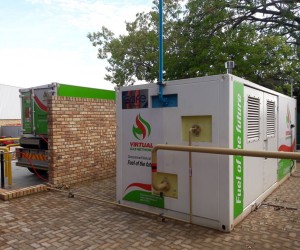Coal has been South Africa’s primary source of energy for decades. About 77% of South Africa’s energy needs are met by coal, the production of electricity is the highest consumer of coal. The top three highest electricity producing stations, Kusile, Medupi, and Kendal Power Stations all use coal-fired plants.
According to South Africa’s Energy Road Map, which maps out the energy mix for the next decade, the use of coal is expected to gradually phase-out.
Why coal is being “kicked out”
According to the 2018 Greenpeace report, South Africa’s coal belt in Eastern Mpumalanga had the highest polluting cluster of coal-powered stations in the whole world! This resulted in extremely high nitrogen dioxide and 2,200 premature deaths from NO2 pollution.
“The combustion of coal is regarded as the biggest single source of carbon dioxide emissions, leading to climate change. We offer a natural, affordable energy source that is used in over 97 countries.” – Wayne Williams, Group Sales and Marketing Manager, Virtual Gas Network
Due to the hazardous effects of burning coal, South Africa is moving (albeit slowly) away from the reliance on coal. This is great news for the environment, but what does it mean for the populace who rely on electricity?
An old friend: Natural Gas
Natural Gas is the cleanest-burning hydrocarbon, producing around half the carbon dioxide (CO2) and just one-tenth of the air pollutants of coal when burnt to generate electricity. Natural gas is increasingly becoming a focal topic in international energy discussions worldwide. For South Africa, recent discoveries of Natural Gas reserves in surrounding countries, such as Mozambique has heightened the availability, demand, and supply of Natural Gas. Due to carbon constraints, economic constraints and the increase in energy demand, Natural Gas has become a national key component.
As the phase-out of coal continues, the role of Natural Gas is expected to continue to expand and its importance in the country is likely to increase further as the clamping down of greenhouse gas emissions intensifies.
Many industries that require reliable energy can confidently convert to Natural Gas. It burns more cleanly than other fossil fuels, emitting lower levels of harmful emissions such as carbon monoxide, carbon dioxide, and nitrous oxides. The perfect combustion provided by Natural Gas makes it an efficient and powerful source of energy.
In the past, the shortage of Natural Gas infrastructure in South Africa posed a great hurdle to the circulation and use of Natural Gas by various industries. Taking note of this, the Virtual Gas Network, a division of CNG Holdings saw a solution that resolves this energy problem.
How a Virtual Gas system works
The Virtual Gas Network supplies compressed Natural Gas through its Virtual Gas Distribution network. This is a reliable commercial-scale supply of Natural Gas in South Africa; the network is available to businesses anywhere within a 300-km radius of Johannesburg. Lack of infrastructure is no longer a problem, businesses can receive the desired amount of Natural Gas right at their premises.
Switching to a clean, reliable and inexpensive source of energy has never been this convenient.






